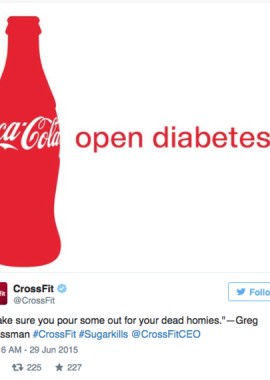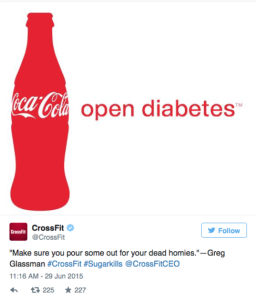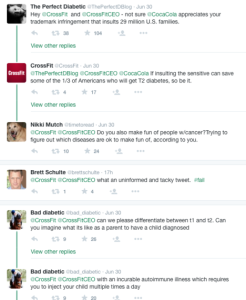I had the opportunity this last month to speak at a fitness conference on program design and to deliver a webinar on training clients with diabetes. I was searching for ways to supplement the relatively straightforward content with some other, perhaps lesser known aspects, and found a couple of points that made me pause: stigma and the obesity paradox.
STIGMA
While reading up on diabetes I found results of a study on the topic of stigma. A survery conducted by dQ&A that I read about in this wonderful article at diatribe.org (shame and blame) showed that an overwhelming majority of people with diabetes feel that it comes with social stigma. Moreover, they feel that there is a specific perception of personal failure and character flaw and that they are thus viewed as a burdon on society.
The idea of being a burdon on society in particular gave me pause. We all have used (I know I have) the argument that obesity and a general lack of fitness is a strain on health care and ultimately the economy at large. That argument is well intentioned in that we are aiming at collective action towards a concern for the collective good, but by the same token, are we not also sending a message that certain individuals are a burdon?
Last June, there was a good example of how this can backfire in fitness. Crossfit published a tweet of the Coca-Cola advertisement that said “open diabetes” and the internet backlash was marked.
Many people were offended by the insinuation.
As you can see, there is certainly an importance in how we communicate. I think the positive lesson for all well intentioned fitness professionals is, rather than making broad negative statements, we should focus on the many positives of engaging in healthy behavior, such as improved health, improved feelings of well-being, fewer visits to the doctor, and longer and more invigorating lives.
THE OBESITY PARADOX
The other interesting thing I cam across was the obesity paradox. In a nutshell, the obesity paradox is the observation that obesity (and sometimes even high cholesterol) may in fact be protective in some groups of people such as the elderly or those with particular health conditions. It is unclear why this is the case, but it has given rise to some very interesting work in our understanding of obesity and health. Suffice it to say, the picture is not as clear as we tend to believe when it comes to overweight and obesity. For more on that check out my Book Review – Body of Truth, which is a rundown on a very interesting book by the same name.
CONCLUSION
Our job as fitness professionals is to help people. To do that, we have to have some kind of relationship with the person that fosters trust. It need not be a particularly deep or personal one, but there must definitely be a sense of respect and comfort flowing in both directions. For me, the above information has helped focus my attention towards my own mindset and assumptions and how those do or do not help my ability to promote health and fitness.
PHOTOS: Riva Greenberg for the Huffington Post – http://www.huffingtonpost.com/riva-greenberg/people-disgusted-by-cross_b_7721848.html




